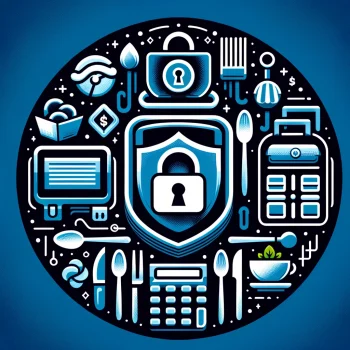
Introduction
If you accept credit cards as a form of payment, then you're likely familiar with PCI compliance. But what exactly is it? And why does it matter?
PCI compliance is a set of security standards that businesses must adhere to in order to process credit card payments safely and securely. By meeting these standards, businesses can help protect themselves from data breaches and fraud, while also providing customers with peace of mind knowing their information is safe.
There are a number of requirements that businesses must meet in order to be PCI compliant, including ensuring that all credit card data is encrypted, maintaining a secure network, and regularly testing security systems. While meeting these requirements can be costly and time-consuming, the potential costs of not being compliant are much higher.
In the event of a data breach, businesses that are not PCI compliant can be subject to heavy fines from credit card companies and banks. In addition, they may also face legal action from customers who have had their personal information compromised.
Businesses that take steps to become PCI compliant can help to safeguard their customers' data, while also protecting themselves from financial and legal repercussions.
The Importance Of PCI Compliance
If you accept credit cards as a form of payment, then you're likely familiar with PCI compliance. But what exactly is it? And why does it matter?
PCI compliance is a set of security standards that businesses must adhere to in order to process credit card payments safely and securely. By meeting these standards, businesses can help protect themselves from data breaches and fraud, while also providing customers with peace of mind knowing their information is safe.
There are a number of requirements that businesses must meet in order to be PCI compliant, including ensuring that all credit card data is encrypted, maintaining a secure network, and regularly testing security systems. While meeting these requirements can be costly and time-consuming, the potential costs of not being compliant are much higher.
In the event of a data breach, businesses that are not PCI compliant can be subject to heavy fines from credit card companies and banks. In addition, they may also face legal action from customers who have had their personal information compromised.
Businesses that take steps to become PCI compliant can help to safeguard their customers' data, while also protecting themselves from financial and legal repercussions.
The Requirements For PCI Compliance
If you accept credit cards as a form of payment, then you're likely familiar with PCI compliance. But what exactly is it? And why does it matter?
PCI compliance is a set of security standards that businesses must adhere to in order to process credit card payments safely and securely. By meeting these standards, businesses can help protect themselves from data breaches and fraud, while also providing customers with peace of mind knowing their information is safe.
There are a number of requirements that businesses must meet in order to be PCI compliant, including ensuring that all credit card data is encrypted, maintaining a secure network, and regularly testing security systems. While meeting these requirements can be costly and time-consuming, the potential costs of not being compliant are much higher.
In the event of a data breach, businesses that are not PCI compliant can be subject to heavy fines from credit card companies and banks. In addition, they may also face legal action from customers who have had their personal information compromised.
Businesses that take steps to become PCI compliant can help to safeguard their customers' data, while also protecting themselves from financial and legal repercussions.
The Consequences Of Not Being PCI Compliant
If you accept credit cards as a form of payment, then you're likely familiar with PCI compliance. But what exactly is it? And why does it matter?
PCI compliance is a set of security standards that businesses must adhere to in order to process credit card payments safely and securely. By meeting these standards, businesses can help protect themselves from data breaches and fraud, while also providing customers with peace of mind knowing their information is safe.
There are a number of requirements that businesses must meet in order to be PCI compliant, including ensuring that all credit card data is encrypted, maintaining a secure network, and regularly testing security systems. While meeting these requirements can be costly and time-consuming, the potential costs of not being compliant are much higher.
In the event of a data breach, businesses that are not PCI compliant can be subject to heavy fines from credit card companies and banks. In addition, they may also face legal action from customers who have had their personal information compromised.
Businesses that take steps to become PCI compliant can help to safeguard their customers' data, while also protecting themselves from financial and legal repercussions.
Not being PCI compliant can have serious consequences for businesses, including heavy fines, legal action, and loss of customer trust. By taking steps to become compliant, businesses can help protect themselves and their customers.
Conclusion
In conclusion, businesses should take steps to become PCI compliant in order to safeguard their customers' data. Not being compliant can result in heavy fines, legal action, and loss of customer trust. By meeting the requirements for compliance, businesses can help protect themselves from data breaches and fraud.